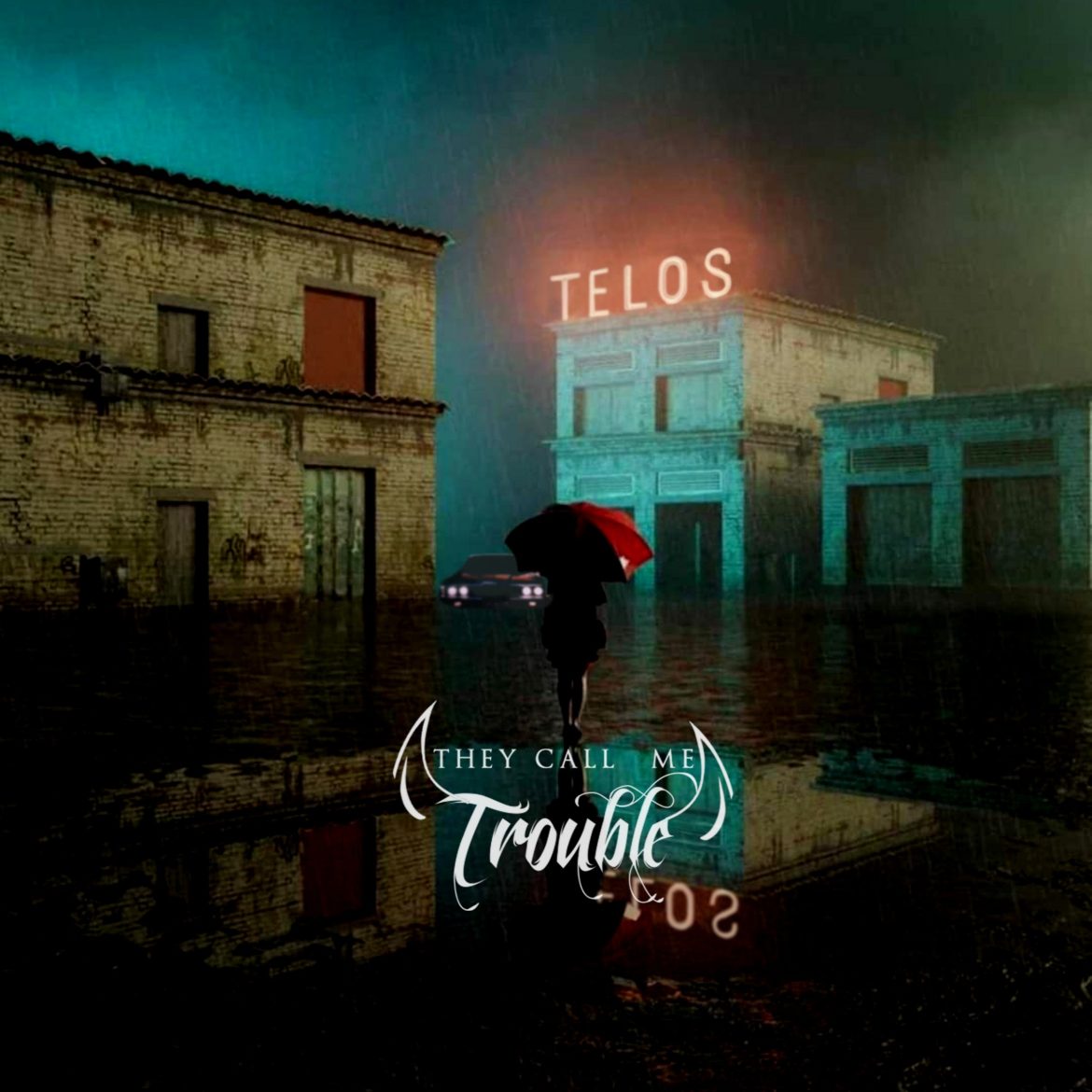They Call Me Trouble & the Reckoning of Telos
Some music is made to be consumed: pleasant, palatable, easily digestible. And then there’s Telos, the debut album from They Call Me Trouble, that walks in the room like ti owns the place and dares you to look away. This isn’t background music. It’s unapologetic, sharp-edged, and soaked in raw honesty and
the blues. If you’ve ever felt like you were too much, too bold, too unwilling to shrink yourself for the comfort of others, this album is for you.
A Name Earned, Not Chosen
Trouble elicits strong reactions in people; some magnetic, some violently repelled, but rarely indifferent. For years, Trouble took the blame for it, wondering what she’d done to warrant the friction, the sabotage, the rejection. But after everything – the obstacles, the losses, the quiet battles
fought alone – it became clear her existence itself was the spark. She wasn’t causing trouble. She was Trouble.
So she decided to own it.
“They Call Me Trouble” isn’t an act or a persona: it’s a reclamation. It’s a refusal to shrink, an acceptance of the firestorm she invokes simply by being herself. And if that unnerves people, that’s their burden to carry.
The Reckoning of Telos
Trouble tried to walk away from music many times. The setbacks, the sabotage, the exhaustion of fighting to do something she loved when everyone was telling her she couldn’t… it all should have been enough to break her. But songwriting, as Trouble herself says, is the only therapy she can afford.
No matter how many times she tried to quit, something always pulled her back. And then she stumbled upon Telos, the word Aristotle used to describe an artist’s true purpose. Suddenly, it all made sense. Music wasn’t just something she did; it was something she had to do…
her true calling.
Telos is an album stripped of pretense. It’s a love letter to Trouble’s younger self, a confrontation with regrets, betrayals, and wounds long left to fester. It’s the first time she’s stopped sanitizing the truth: no more half-measures, no more packaging it in palatable metaphors to avoid backlash. Telos is
unfiltered, raw, and real. It’s not just the words; it’s the way they land, with a voice that carries the weight of someone who’s lived their lyrics, who’s tasted defiance and decided it suits them. What makes this songwriting distinctive isn’t just the technical prowess, it’s the ability to infuse stories
with emotional authenticity, serving as pieces of a larger puzzle, evoking themes of transformation, empowerment, and the unknown.
The Stories Etched in Sound
Each track on Telos is its own reckoning.
Hi, I’m Trouble is the introduction – the warning label – an anthem of unapologetic existence for those
who refuse to shrink.
Rolling Thunder is a battle cry for workers drowning under a system designed to wring them dry, a
furious anthem that demands change.
Slow Motion Apocalypse is a love song for the end of the world, a reflection on those who let it
happen in the name of power and faith.
Feel It In My Bones is a love song in the truest sense, an ode to two battered souls finding each other
and choosing to risk love despite the scars.
Bad Witch takes every slur, condemnation, and whispered accusation thrown at headstrong,
questioning women and owns them.
Dark Horse is the story of every time she’s been counted out, disregarded, underestimated, only to
prove every cynic wrong.
Play It By Ear is music as therapy, the act of songwriting as a lifeline when the world offers nothing
else.
Placebo Effect bleeds on the page, exposing the raw truth of survival, the wounds left untreated, the
pain buried under false remedies.
Black Powder is pure electric grit, a confrontation with those who take without giving, who use and
discard without consequence.
Tip of My Tongue seethes in betrayal, the frustration of shouting truth into a void, only for lies to be
embraced instead.
Love Gone South reflects on a doomed relationship, the realization that no amount of giving will ever
be enough for someone unwilling to change.
Riding The Bell is a battle against the pressure to conform, the refusal to just “fit in” and settle for
survival. With tribal drums pounding like a coming storm, it channels the frustration of rejection and
the exhaustion of being extraordinary in a world that punishes those who stand out.
Moonshine Valentine transforms the 1911 silent film The Revenuer & The Girl into a true Appalachian
murder ballad, reclaiming the story’s rightful darkness.
New Orleans is an acoustic ballad steeped in regret, the quiet sorrow of time wasted, dreams
abandoned, needs ignored. The city itself becomes a metaphor for a dream deferred, a place that
once held promise but now remains painfully out of reach.
Hollow Bones is the regret of emotional self-preservation, a reflection on trading pain for numbness,
only to lose the ability to feel at all, leaving only hollow echoes where love once lived.
What Comes Next?
If Telos is Trouble’s first unfiltered statement, it certainly won’t be her last. She’s here to challenge, to provoke, to be felt and experienced, continuously expanding the boundaries of what sound, narrative, and mystery can achieve. Perhaps most importantly, she never stops pursuing the dream everyone
told her to abandon. Telos, indeed.





